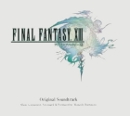
|
|
Speedbeats Grand Prix: Sonic Riders Original Soundtrack :: Review by Chris
 |
Album Title: | Speedbeats Grand Prix: Sonic Riders Original Soundtrack |
| Record Label: | Wavemaster | |
| Catalog No.: | WM-0525 | |
| Release Date: | March 16, 2006 | |
| Purchase: | Buy at CDJapan |
Overview
Sonic Riders revived the Sonic racing subseries in a fresh, revamped format. It's score was handled by several members of Sonic Team, namely Tomonori Sawada (Daytona USA Circuit Edition, Space Channel 5), Kenichi Tokoi (Sonic Adventure, Astro Boy), and Fumie Kumatani (NiGHTS, Phantasy Star Online). They chose to adopt an electronic sound throughout that complemented the dynamic gameplay and upbeat attitude of the game. However, there was a little diversity offered through vocal themes and more to ensure a more diverse experience. The result was compiled in Speedbeats Grand Prix.
Body
The vocal themes for Sonic Riders are competent and different, but nevertheless a select taste. The opener "Sonic Speed Riders" would be a fairly generic pop theme if merely runblebee's vocals and the awkward racing-related lyrics are taken into account. However, Tomonori Sawada livens things up a bit with pumping electronic beats, electronic voice manipulation, and even some rock influences. He gets the chance to really extend and warp the theme in the vocoded electro mix at the soundtrack too. The ending theme "Catch Me If You Can" is definitely more experimental. Composer Kenichi Tokoi blends pop and hip-hop influences throughout to achieve a relatively unique sound, but hardly one as stylised as, say, Justin Timberlake. Nevertheless, there is definite innovation in the runblebee's vocals and the electronic backing nonetheless. There is a bonus remix of the track at the very end of the soundtrack with distorted vocals and rocking beats, though it's more of a novelty despite its high production values.
The majority of the soundtrack is dominated by fast-paced electronic music. Tomonori Sawada's "Theme of Metal City" is a very convincing attempt at psychedelic trance music and works well in the game to represent dynamic and transient racing scenes. However, there is pretty much nothing that makes the track stand out — whether a strong melody or a novel element — so it is less ideal for stand-alone listening. At least the hard bassline of "Theme of Egg Factory" or the aggressive breakbeats of "Survival Step" have an emotional effect out of context — well, emotional like a head-thrashing metal piece, not a profound symphony — whereas some of the others have a completely neutral effect. The warmer synth leads in "Theme of Splash Canyon" and "High Flying Groove" are quite attractive too, but the generic quality still remains. They're good to listen to while doing something more stimulating, perhaps because they're so undistracting, but deeper listens are ultimately underwhelming.
There are fortunately a few more novel themes to keep things a little diverse on the soundtrack. "Theme of Green Cave" is a twist on Sawada's usual format with its ethnic vocals and rumbling congas against harder beats. Kenichi Tokoi's Arabian-influenced "Theme of Sand Ruins" is better for those who want a deep yet melodic listen and sounds like it came from the Street Fighter IV. Meanwhile Fumie Kumatani's Digital Dimension and Babylon Garden are enjoyable twists on her Phantasy Star Online style and give a hint of what to expect in the sequel soundtrack; while the orchestral elements are few, the intense and abstract feel is still present. Her Babylonian theme is superficially different too since it features entirely on acoustic instruments in a whimsical dance-like manner; it is dominated by a warm flute melody against playful accompaniment while the changeable 3-3-3-2 metre adds a certain rhythmical jolt. Those looking for a catchy and hyperactive anthem will also find "Theme of SEGA Carnival" delight. But is it too little too late?
Summary
Sonic Riders has by no means a bad score. After all, the pieces are all convincingly composed, expertly implemented, and suitably integrated into the game. It takes some effort to make dynamic yet atmospheric electronic music and the team succeeded in this regard. However, the soundtrack isn't as enjoyable on a stand-alone level. The electronic music largely sounds generic, there are very few attractive melodies, and much of the soundtrack is emotionally aseptic. It was clearly composed as racing background music, not for a stand-alone listen. Some might find comfort in the vocal themes or the instrumentals that buck the trend. However, this 21 piece score probably doesn't have enough highlights overall to justify a purchase. Its sequel soundtrack is more worthwhile.

